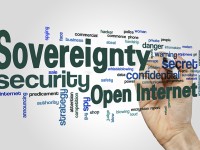Franz-Stefan Gady, Associate Editor, Diplomat
Oct 25, 2016
While U.S. China relations regarding cyber security have improved over recent years, there are still large areas of distrust and room for improved communication. Namely, there are critical points regarding the 2015 agreement that are still evolving in the 2015 cyber attack agreement between the U.S. and China. Although cyber attacks have not decreased, promising diplomatic initiatives and areas of discussion have been opened.

Tang Lan, Deputy Director, Institute of Information and Social Development, CICIR
Sep 08, 2016
The US government recently announced it would transfer governance of the Internet to the “global multi-stakeholder community” on Oct 1. This is a major step forward in global Internet governance reform since in March 2014, when the US National Communications and Information Administration formally declared it would surrender control over ICANN.
Rogier Creemers, Research Officer, Programme for Comparative Media Law and Policy
Aug 16, 2016
The Chinese government published its national cyber strategy, which aims to transform it into a strong Internet power within this century. It will have a considerable impact on how China will attempt not only to reshape the architecture information and communication technologies at home, but also how it will position itself in global strategic terms.

Joseph S. Nye, Professor, Harvard University
Jun 30, 2016
The first nuclear arms control agreements in the 1960s did not solve all the problems of controlling nuclear weapons. But after two decades of slow learning, those agreements started a process. Joseph S. Nye proposes that President Obama and President Xi’s 2015 agreement on cyber espionage may do something similar for cyber security.

Rogier Creemers, Research Officer, Programme for Comparative Media Law and Policy
Jun 07, 2016
Norms, or generally accepted modes of behaviour, have provided a quicker and more flexible approach than international law for governing actions in cyberspace. While both China and the United States have begun discussing such behaviour in terms of international law, it currently seems unlikely that an agreement, or even trust, will be reached in the near future.
Rogier Creemers, Research Officer, Programme for Comparative Media Law and Policy
Apr 27, 2016
Rogier Creemers argues that for global Internet continuity, the West must recognize China has legitimate interests and claims that must be respected, even if the foundational values of its political system are diametrically opposed. Conversely, China must come to terms with the fact that not all rules in the global playing field are sedulous attempts by the U.S. to expand its own power, and that it also must be bound by them in order to maintain global stability and prosperity.
Rogier Creemers, Research Officer, Programme for Comparative Media Law and Policy
Apr 11, 2016
Various news outlets alleged that new Internet regulations might cut China off from the global Internet, and that foreign websites might have to re-register within China in order to maintain access to its market. Few of these comments, however, evince an understanding of how the domain name system (DNS) works, and how these regulations might impact online traffic.

Rogier Creemers, Research Officer, Programme for Comparative Media Law and Policy
Jan 25, 2016
China’s position on Internet governance is that the Internet is a mere reflection of physical space, and therefore should be subject to similar norms of non-external interference. After the Wuzhen Conference, the question on how to engage with China in the realm of cyberspace remains largely unanswered.
Franz-Stefan Gady, Associate Editor, Diplomat
Jan 07, 2016
China used the World Internet Conference to promote its vision of Internet governance to an international audience and to defend the concept of cyber sovereignty. China will continue to push for multilateral internet governance, rather than multi-stakeholder internet governance, which can include private companies and other groups.